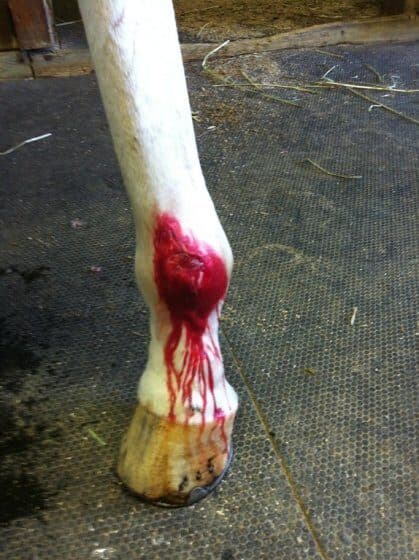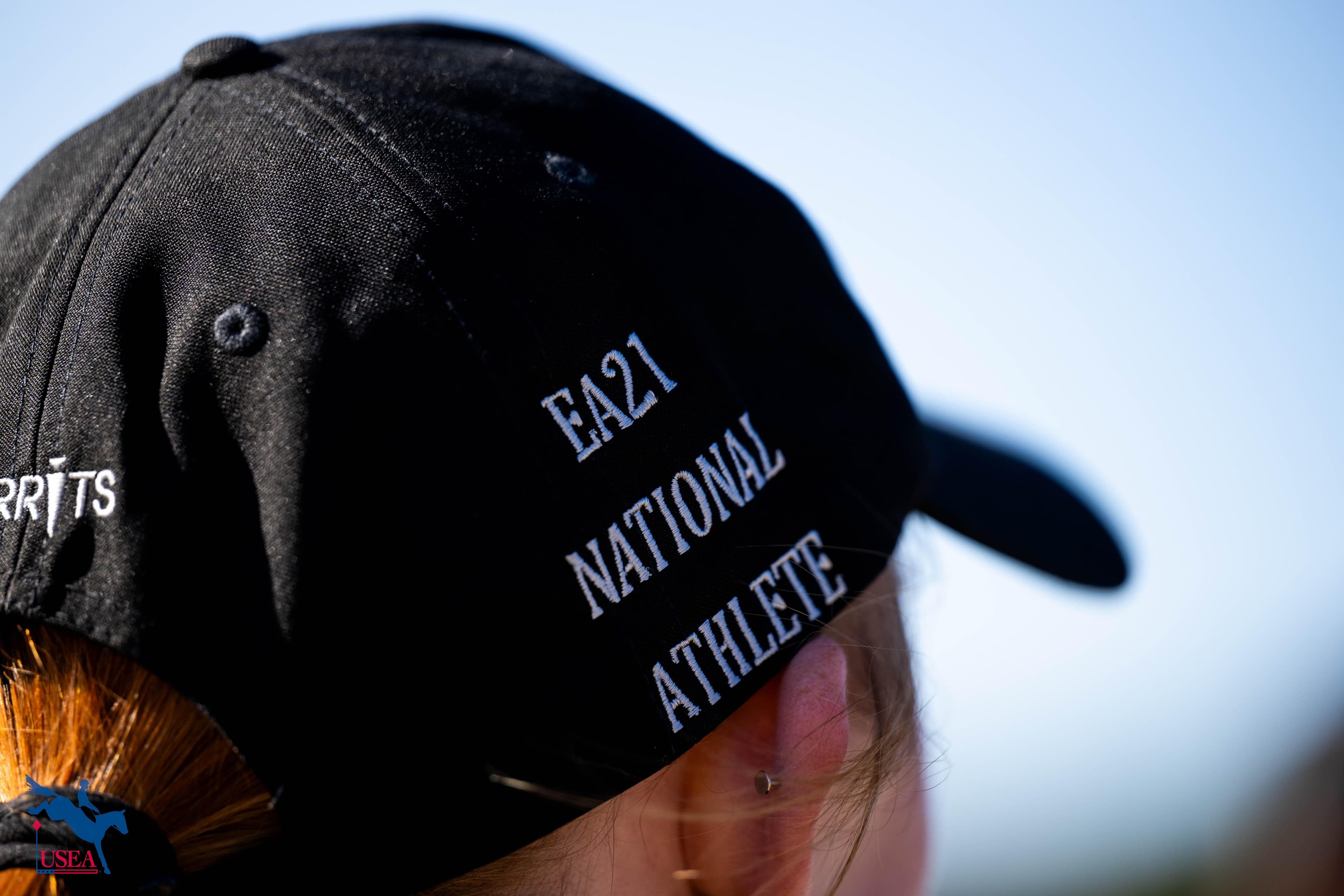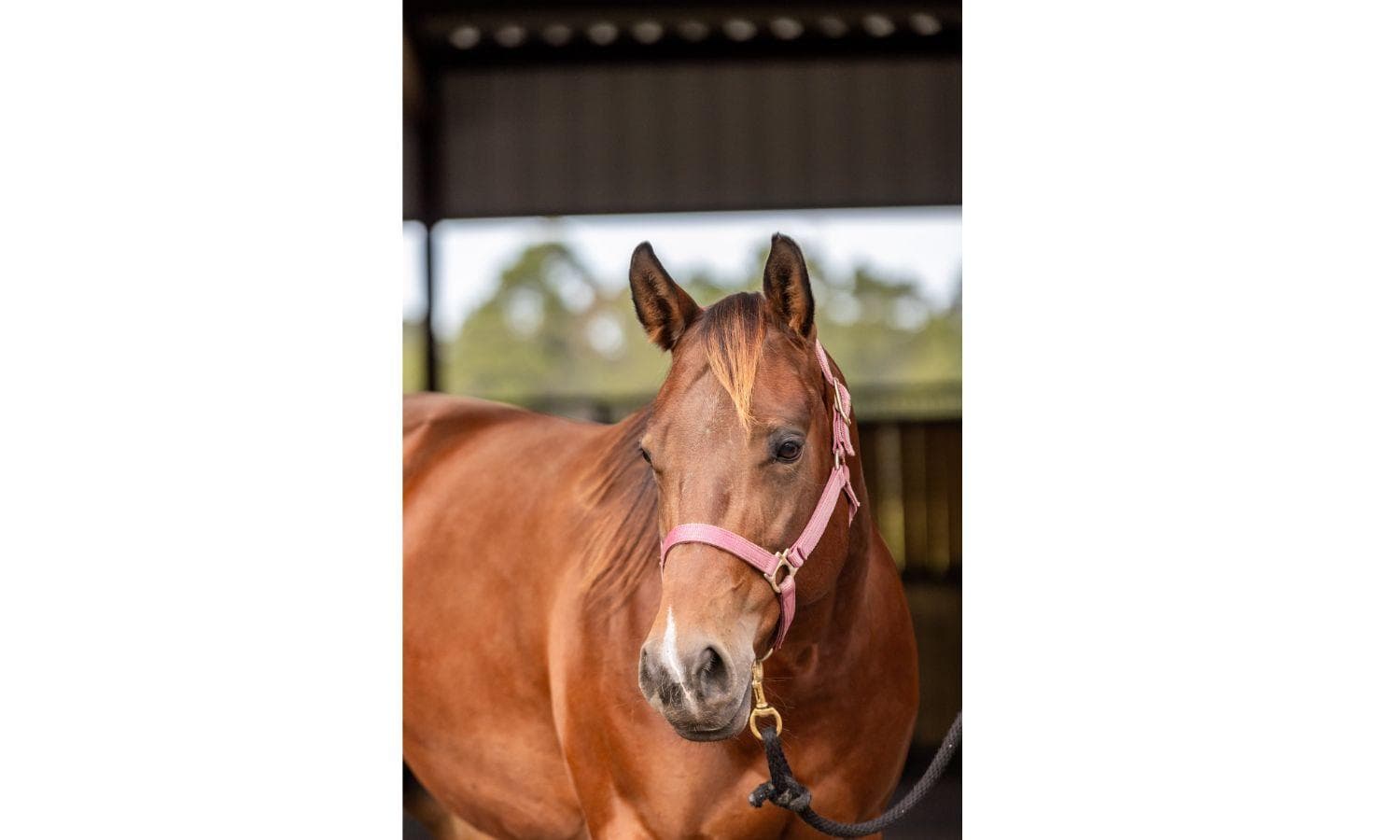First Aid: What can YOU do in an emergency situation?

Be Prepared:
It is easy to panic when an emergency arises. If you are prepared, you can help your horse as quickly and efficiently as possible. Make sure that you have your veterinarian’s information (name, phone number, emergency number) easily accessible on your horse’s stall, with you, and with your barn manager/farm owner. You may also want to consider assembling a first-aid kit.
What IS an emergency?
Some emergencies are more critical than others. It may be difficult for you to judge whether or not a situation with your horse is an emergency.
The following are emergencies seen commonly:
- Colic
- Wounds or profuse bleeding
- Severe lameness or unwillingness to move
- Abnormal eyes
- Fever/not eating
- Diarrhea
- Profuse, sudden nasal discharge
- Respiratory distress
- Neurological disease
- A horse that is unable to get up (“down horse”)
- Trouble foaling
When in doubt, please call! Emergency veterinary practices are available 24 hours a day, 7 days a week. They can help you decide whether an emergency visit is necessary or if monitoring your horse for a few hours/overnight is reasonable.
When you call the emergency line, make sure that you have the following information readily available:
- Where is the horse located (physical address)?
- What is the horse doing?
- Did it eat/drink/pass manure?
- Rectal temperature?
- Any medications?
While you are waiting:
- Keep the horse as calm as possible. If he is rolling repeatedly, try to keep him on his feet and walking. However, do not put any people in danger while doing this. Human safety always comes first.
- If possible, take your horse’s vital signs (heart rate, respiratory rate, and rectal temperature).
- Do not give your horse anything to eat, especially if he/she is colicky.
- If your horse is actively bleeding, try and stop it using a pressure wrap.
- ***Do not give any medication unless directed by your veterinarian.***
When the vet arrives:
The vet will immediately assess the situation, typically starting with a physical exam. After his initial assessment, he will discuss any treatment decisions with you. He will leave you with a detailed plan so that you understand any further care that your horse may need.
TAKE HOME MESSAGE:
- Be prepared.
- Have your veterinarian’s information easily accessible.
- When in doubt, just call!!!
About the Author: Dr. Erin K. Dill received her bachelor of science degree from West Virginia University. From there, she went on to veterinary school at the University of Georgia. Dr. Dill graduated in the spring of 2007 and then completed an Equine internship at the University of Missouri. Her veterinary interests include lameness, sport horse medicine, neonatal care and dentistry. She has also been an avid rider and instructor throughout her college years in the hunter/jumper circuit. In her free time she enjoys riding her horse Enzo and spending time with her husband, Dr. Jeff Dill,their two dogs, Olive and Charlie, and their new addition Fiona the cat. Dr. Dill currently works with Henderson Veterinary Associates in Elizabethtown, PA.














